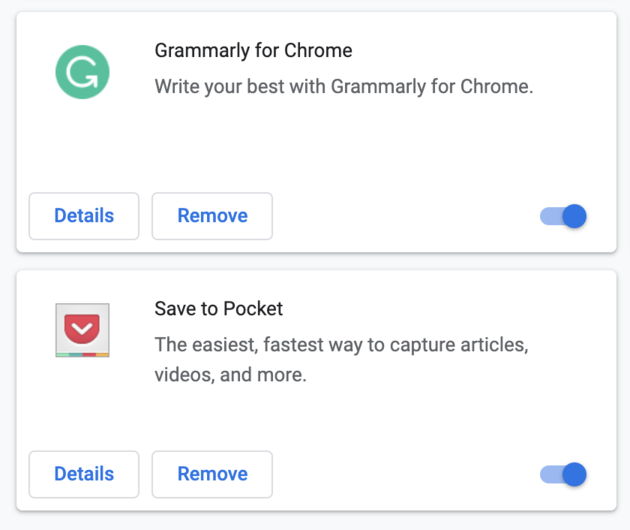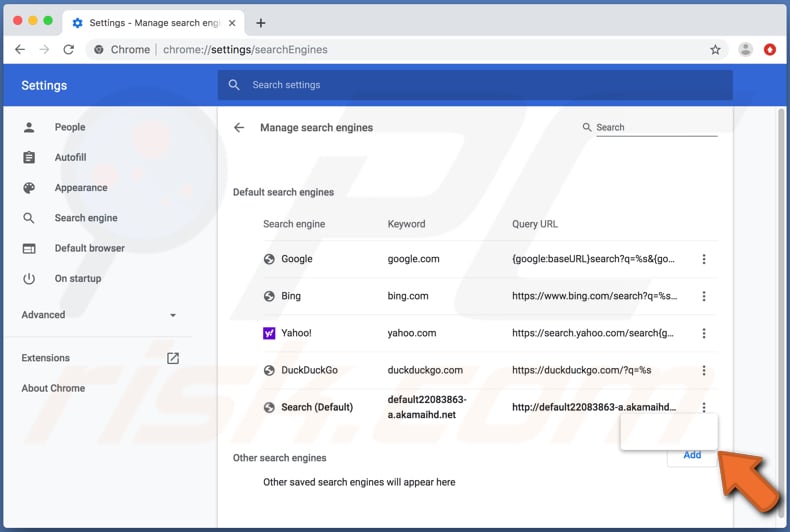In May 2020, Microsoft released its latest significant update for Windows 10. As an unfortunate side effect of the May 2020 Windows 10 update, some users have reported notable issues with the Google Chrome browser.
MantisBT is a popular free web-based bug tracking system. It is written in PHP works with MySQL, MS SQL, and PostgreSQL databases. MantisBT has been installed on Windows, Linux, Mac OS, OS/2, and others. Depending on your sandboxing configuration and Chrome version, you may need to pass '-allow-sandbox-debugging' when starting Chrome (see this bug). Verify you've turned crash reporting on. Go to the page chrome://settings/advanced using the address bar. The Chrome team admitted the reports and requested the affected users to share the details regarding the problem in the help forum. Symantec recently published a blog post to acknowledge this issue. The problem was caused due to incompatibility issues between Microsoft’s Code Integrity feature and Symantec’s Application Control technology. A bug in Chrome's browser process; a bug in the Linux kernel; a hardware defect; If you see a freeze, try pressing Alt+Volume Up+X once, with the keys depressed in that order. (If you're using a non-Chrome-OS keyboard, use Alt+F10+X instead.) This will instruct the Linux kernel to attempt to make the Chrome process crash and restart. Chrome's update to version 85.0.4183.121 on the desktop fixes 10 security flaws, five of which were categorized as 'high' severity, according to the official Chrome blog.
Following an update to Windows 10’s May 2020 version, some users across Reddit and Google’sHelpForums have noted that the browser has stopped syncing and reverts to a signed-out state upon a reboot. This doesn’t affect bookmarks but it would affect the data you back up to your Google account for the sake of syncing to smartphones or other computers.
Further, and perhaps most annoyingly, this issue is also deleting cookies off of the machine. With that, websites treat that Chrome browser as a fresh install, asking users to sign in every time they reboot their machine.

As pointed out by TechDows, Google has actually been aware of these issues with Chrome since before the Windows 10 May update was released. A Chromium bug report from April details Google’s knowledge of the problem, and a full two months later the company is still investigating the problem.
Update 10/12: Nearly four months after we first reported on this problem, it’s still happening. Some users are still encountering issues on the latest versions of Windows while using Chrome and it seems that Google and Microsoft have no clear solution in sight.
Luckily, a new workaround has appeared that seems to fix the problem as well as revealing its potential source. Unearthed by TechDows, a user commented on a Chromium thread to point out that an “S4U” task in the Windows Task Scheduler seems to cause Chrome to dump passwords and other data. Microsoft explains what an “S4U” task is in more detail here, but the long story short is that it allows the computer to run tasks as a local system account. The user explains:
This is because the RPC that UBPM uses to create the S4U token can sometimes delete your saved credentials in lsass. Amongst other things, your saved credentials (or rather, the hash of them) are used to generate your DPAPI user encryption key, and when they’re deleted lsass just uses the hash of the empty string (!!).
Frankly, that’s way over my head, but other users on the thread report back that disabling these S4U tasks fixes the problem. Notably, at least one Microsoft engineer responded to the comment to say that they are looking into this solution. To try it out for yourself, open a PowerShell window as an administrator and paste the command below. Then, delete any tasks it lists from the Task Scheduler.
Get-ScheduledTask | foreach { If (([xml](Export-ScheduledTask -TaskName $_.TaskName -TaskPath $_.TaskPath)).GetElementsByTagName(“LogonType”).’#text’ -eq “S4U”) { $_.TaskName } }
If you’re being affected by this frustrating issue, give it a shot!
The original article follows.
If you’re a Chrome user on Windows 10, it’s probably best to avoid the May update — version 2004 — until things get patched up. You can do so by going to Settings > Update & Security > Pause Updates. There, you can pause any Windows 10 updates for up to 35 days. In my case, I really hope that means Google has this patched up before July 2nd.
Notably, there is one potential workaround that Google security researcher Tavis Ormandy figured out. He explains:
If you look in Event Viewer, under Windows Logs > Applications and Services > Microsoft > Windows > Crypto-DPAPI > Operational, do you see any errors? If the answer is yes, try this:
- Close all Chrome Windows
- Lock (Press Win+L) your Workstation
- Unlock, then start Chrome, does it work then?
Help+manual Bug Chrome For Mac Os
If you’re affected, drop a comment below and let us know if this workaround patches things up (temporarily, at least) for you. There’s a good chance, too, that other Chromium-based browsers could be affected by this as well. As Windows Latest points out, other apps affected by this bug include Microsoft’s own Mail and OneDrive apps.
More on Google Chrome:
FTC: We use income earning auto affiliate links.More.
A wave of reported Macs being no longer able to boot was caused by a recent Google Chrome update that was corrupting a necessary operating system folder. Once the update was installed, affected users found they were no longer able to boot into macOS.
Yesterday we reported that some users of the Avid Media Composer video editing program were not able to boot their Macs after shutting down or restarting. While some users were concerned it was a virus, the thought was that a system folder was being corrupted.
It turns out that this issue is not being caused by a virus or an Avid update, but rather by a faulty Google Chrome for Mac update that is causing the /var symlink to be removed.
According to a Google Chrome open bug post, this is being caused by a bug in a new version of Google's software updater, codenamed Google Keystone.
Mac blog Mr. Macintosh explains that this is happening to users running macOS 10.9 – 10.14 Mojave who have disabled Software Integrity Protection (SIP).
They further state that many Avid users use 3rd-party video cards for video editing and need to disable SIP in order to use them, which might be the reason why the issue was noticed by so many in that community.
Google has posted a support article on how to resolve this issue by removing the current Google updater package and then recreating the /var symlink.
We recently discovered that a Chrome update may have shipped with a bug that damages the file system on macOS machines with System Integrity Protection (SIP) disabled, including machines that do not support SIP. We've paused the release while we finalize a new update that addresses the problem.
If you have not taken steps to disable System Integrity Protection and your computer is on OS X 10.11 or later, this issue cannot affect you.
To recover a machine that has been affected by this bug, please boot into recovery mode, and then from the Utilities menu open the Terminal application.
In the Terminal application, you can run the following commands:
chroot /Volumes/Macintosh HD # 'Macintosh HD' is the default
rm -rf /Library/Google/GoogleSoftwareUpdate/GoogleSoftwareUpdate.bundle
mv var var_back # var may not exist, but this is fine
ln -sh private/var var
chflags -h restricted /var
chflags -h hidden /var

xattr -sw com.apple.rootless ' /var
Then reboot. This will remove the affected version of Google Software Update, then restore the damaged portion of the file system.
Note: An earlier version of this page mentioned OS X 10.9 instead of OS X 10.11.
As for Avid, they are just happy that it was not their program causing the issue and have shared this statement with BleepingComputer:
Today, Avid is confirming that the root cause for a reboot issue encountered by some of our customers has been identified and is unrelated to Avid and its creative tools. Google confirmed that a Chrome update “may have shipped with a bug that damages the file system on macOS machines.” Google has paused its release and provided instructions for affected users.
Help+manual Bug Chrome For Macbook


Avid is also pleased to share that it has received no reports of data loss by affected customers. From the beginning when this issue was made known to Avid, our teams actively worked with customers, Apple and partners to identify solutions and communicate them to customers. At this time, most affected Avid customers have recovered from this issue by reinstalling their macOS. Avid received no reports of incidents from customers running on non-Mac operating systems. To reiterate, this was not an Avid issue, as was reported in some early media coverage. We are proud of the coordinated response by Avid, Apple and our partners and we jointly thank our customers for their patience, support and assistance as we worked to quickly resolve this issue.
Avid CEO Jeff Rosica stated, “Avid is pleased that the reboot issue facing some customers is solved and while Avid products are not the root cause, we’re keeping an intense focus on bringing all of our customers back online and back to work. Over the past 36 hours, the deep dive of due diligence working closely with Apple, PACE and other partners exhausted all options and we’ve landed in the right place as quickly as possible. We owe our special thanks to Avid’s customer and user community for their typically strong show of support at this time, especially to those who welcomed our engineers into their studios to troubleshoot.”
Related Articles:
